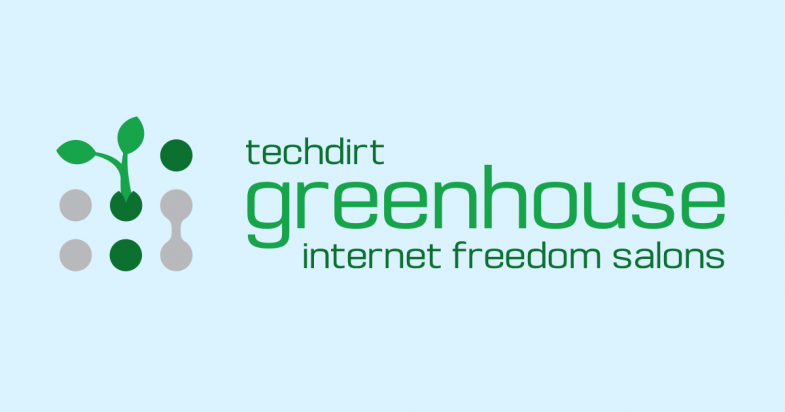Several years ago, we hosted a series of really fun events called the Techdirt Greenhouse, which involved getting a lot of smart people together and actively brainstorming on a variety of topics. We’ve been wanting to bring back the Greenhouse events for a while now, and we’re finally going to do so with a new series of evening Greenhouse Salons hosted by the Copia Institute. Today we’re announcing the very first of these new Greenhouse Salons, The Battle For Copyright Reform. As you know, there are ongoing efforts to reform copyright around the globe, with a proposal leaked for the EU and one expected shortly in the US.
We’re more than a bit concerned about the direction copyright reform may be moving in, especially after the leaked European draft, and thus this Greenhouse Salon will be a gathering to not just discuss issues related to copyright reform, but to actively strategize on how best to both respond to the efforts that are currently underway, and take a much more long-term view on how to really reform copyright in a much more useful way — one that isn’t anti-public and anti-innovation, but which recognizes that there are ways to build policies that align the interests of content creators, the public and innovators together. The event, in partnership with Automattic (creators of WordPress) and sponsored by Pinterest, will be held on September 12th at 6pm in San Francisco. It’s what we consider a working event, where everyone will be expected to participate in discussion groups. The event is invite only (and we’ve already invited a bunch of great people to take part), but we’re now opening it up for others to request an invite as well. We’ll do our best to accommodate requests for invites, while maintaining our goal of keeping the overall attendance at a manageable number to ensure that the group can actually function and accomplish things, and to involve people who have something productive to contribute to the overall discussion.
If you’re interested, please fill out the form to request an invite. We’ll be having more Greenhouse Salons on other topics (and probably in other locations) in future months, so stay tuned…



